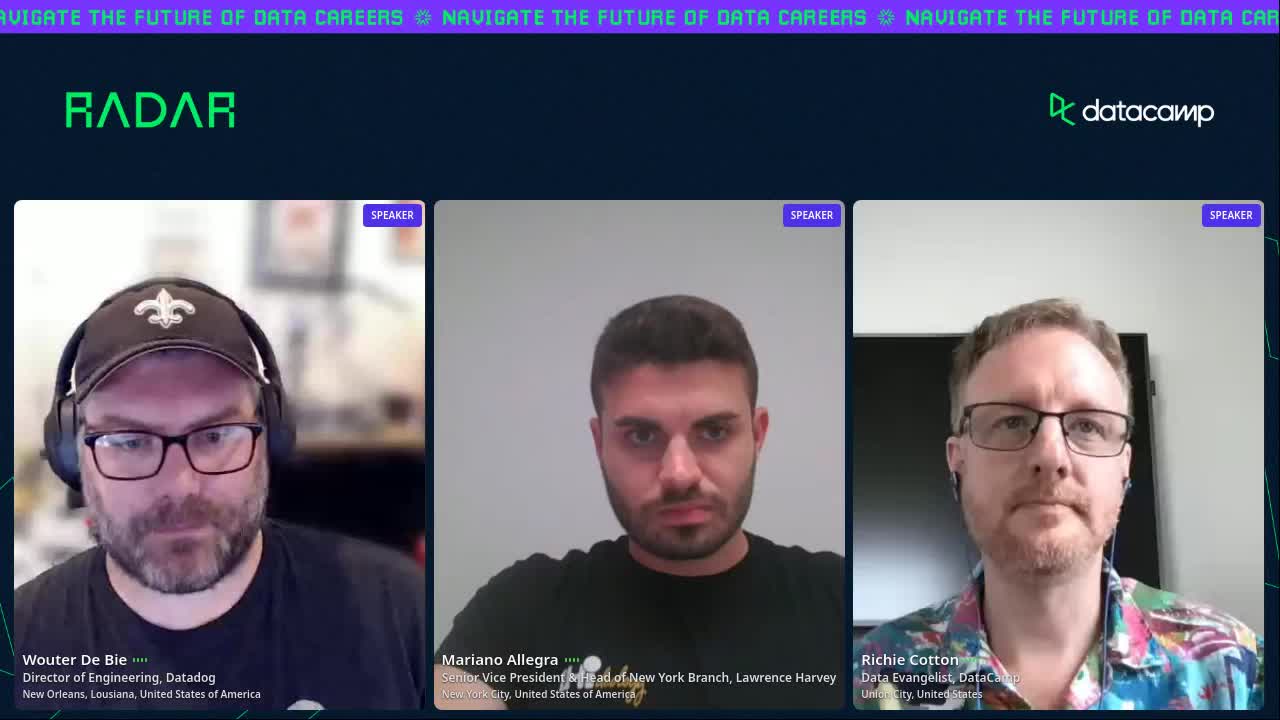Pular para o conteúdo principal





Relacionado
webinar
Radar—Hiring and Building High Impact Data Teams
Data leaders at global brands outline methods to build high-impact data teams.webinar
Radar—Hiring & Retaining Data Talent in 2022
Learn how to optimize hiring flows for data talent, and how to retain talent.webinar
Build Your Dream Team: Hiring Data Talent Effectively
Discover DataCamp Talent, and how it can assist you to scale your data team.webinar
Radar—Keynote—Building the Data-Driven Workforce of the Future
The challenges individuals and organizations face in the era of data fluency.webinar
Build Your Dream Team: Hiring Data Talent Effectively
Discover DataCamp Talent and how it can assist you to scale your data team.webinar
Radar—The Rise of Hybrid Jobs & The Future of Data Careers
Learn how organizations and individuals can adapt to a shifting skills economy.Join 5000+ companies and 80% of the Fortune 1000 who use DataCamp to upskill their teams.
Loved by thousands of companies

